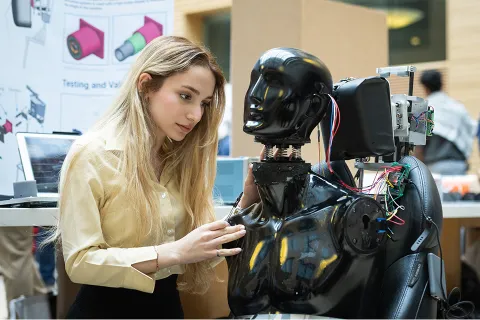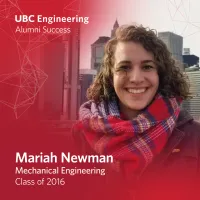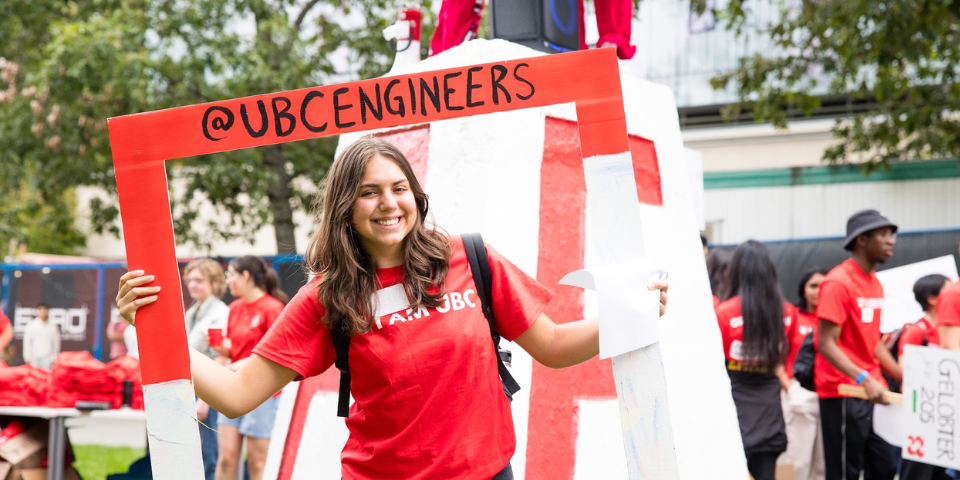
If you want to create the most opportunities for your future, a degree in engineering from UBC combined with co-op is a surefire winner. An engineering degree has long been recognized as perhaps the most versatile and future-proof undergraduate degree.
When you combine it with co-op, you will graduate with the significant advantage of 16 months of paid, varied and relevant work experience.
You will have gained valuable new skills, boosted your resume, grown your professional network and benefited from firsthand exposure to different kinds of companies and work environments.
Read more about how co-op enables you to launch your career while you’re still a student.
One of the largest co-op programs in the country
Just as being part of co-op helps you stand out to employers, UBC’s co-op program stands out compared to those offered at other universities.
UBC has the second-largest co-op program in Canada, and UBC Applied Science Co-op attracts top-name national and international employers who value the contributions of UBC students and are committed to providing them with interesting, relevant on-the-job experience.
UBC’s co-op program is flexible and student-focused
Some universities in Canada require co-op students to complete only a 12-month or 16-month work term with a single employer. Others have rigidly scheduled work terms that must happen at specific times over the course of a degree.
UBC Applied Science Co-op adopts a more flexible approach so that students can choose positions of a duration that are best for them. Most engineering co-op students work for multiple employers over their work terms, which enables them to get on-the-job experience with more than employer.
That’s important!
It gives students the opportunity to gain broad exposure to different kinds of work environments. UBC Engineering students have the option of working for small start-ups and large multinationals, taking jobs on construction or mine sites, or working in high-tech research labs or in an office.

“Another advantage of UBC’s co-op program is our flexibility compared to other universities that have more of a rigid timetable for co-op terms,” says Amir Hariri, Senior Manager of Business Development and Industry Engagement at the Faculty of Applied Science.
“It’s not uncommon for our students to sign up for a four-month work term and then after they start the job, decide that they and their employer want to extend their term. We can make that happen. We don’t want to get in the way of great opportunities.”
That was the case for Mariah Newman, who graduated in 2016 and is currently working as a business operations manager at Intel. “Soon into my first co-op placement at Suncor Energy in Fort McMurray, Alberta, I realized how much I enjoyed the work and asked to extend what was supposed to be a four-month placement to eight and then to 16 months,” she says. “Even though I knew it was an industry I didn’t want to work in, I wanted to extend my co-op because of the experience and opportunities it offered.”

Co-op at UBC gives you broad experience and exposure to different industries
“Many students find it rewarding to work for different kinds of organizations,” says Hariri. “At a start-up, for example, you might have a more fluid job description and more opportunities to work in different areas of the business than you would for a larger organization. Students can also work in different industries to gain wide-ranging experience and learn what they like.”
Brendan Chong exemplifies the diversity of work experiences you can have as a co-op student.
The Integrated Engineering student worked for four companies in four different industries over the course of his degree, including a work term on the materials flow team at Tesla’s Gigafactory in Austin, Texas.
Electrical Engineering graduate Pavni Agarwal also worked for four different employers for her co-op terms, including as an undergraduate research assistant, at FortisBC and two separate engineering consulting firms. “Engineering is such a vast field with so many opportunities, and co-op is a great way to figure out what kind of work you like and don’t like,” she says.
Earn while you learn
These aren’t your typical summer jobs. As you can see from our average monthly wage for UBC Applied Science Co-op students, co-op students are paid well during their work terms.
In fact, the average student will make $65,000 over their work terms!

Gain the experience you need to launch your career
Co-op work terms are incredible opportunities to supercharge your employability as you learn new skills and gain real-world experience.
Geological Engineering student Taylor Chisolm did 16 months of co-op work terms, including an eight-month position at a diamond mine in the Northwest Territories, 200 kilometres from the Arctic Circle.
“These positions enabled me to experience the mining industry first-hand and helped me learn so much about myself, both as an individual and as a professional,” she says. “This experience not only enhanced my technical skills but also gave me confidence in navigating a traditionally male-dominated field.”
Like many students who do co-op, Taylor’s work term led to a full-time job offer before she graduated. The company knew what she was capable of and saw she would be a good fit – and Taylor knew she liked the company and the opportunities it offers to grow her professional career.










